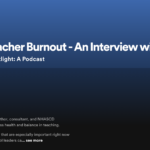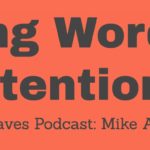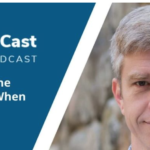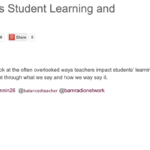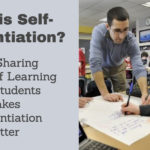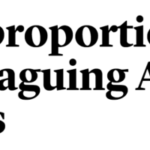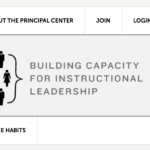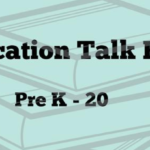When my district first adopted a math program I had mixed feelings. On the one hand, I was relieved. Look a this—all of my math lessons are planned for the entire year! Just imagine the time I’ll save. I won’t
As educators, we all want our students to be motivated. Teachers and schools often pour immense amounts of energy into trying to motivate students, yet often it seems like the more we try, the less kids care. What’s going on?
On December, 10, 2020, I had en enjoyable chat with Jan Yost, Executive Director of NHASCD to talk about ways teachers can take care of themselves a bit during this intensely stressful time. Here are a few quick points that
I was delighted to join a group of deep thinkers for an in-depth panel discussion about leaner-centered education. Hosted by Julie Mountcastle of the Slate School, this conversation is rich and engaging. You’ll hear about the importance of cherishing children’s
A Conversation with Mike Anderson, Little Things First
This is part 3 of a four-part series on how to support educators in the midst of the coronavirus pandemic.
In this conversation with the Little Things First podcast hosts, Tracy
We all have good intentions, don’t we? It’s also true that we all have to fall into habits when it comes to the way we talk with students. There’s also no doubt that we all end up in some
In this article published in District Administration, I share some thoughts about the challenges some educators face when they feel that district policies around discipline are at odds with their own core values.
In this lively chat with educators Allison Zmuda (personalized learning guru) and Bena Kallick (co-creator of The Habits of Mind framework), we discuss how to move beyond simply giving students choices about their learning. To really leverage the power of
I hope you enjoy this lively conversation with Jeff Bradbury on The TeacherCast Podcast about my latest book, What We Say and How We Say It Matter: Teacher Talk that Improves Student Learning and Behavior.
I had the honor and pleasure of chatting with ASCD Emerging Leader Rachael George about my newest ASCD Book: What We Say and How We Say It Matter: Teacher Talk That Improves Student Learning and Behavior. The interview was
Once again, I had the privilege of joining Larry Jacobs on Education Talk Radio PreK-20. We talked about some of the challenges of (and possible solutions for) homework. Enjoy!
Original link: http://www.blogtalkradio.com/edutalk/2017/08/01/expert-mike-anderson-on-homework
Save
Save
How Sharing Control of Learning with Students Makes Differentiation Better
Too often, differentiation (especially when it’s called differentiated instruction) places nearly all of the responsibility and work for differentiation in the teacher’s court. This often results in teachers feeling like
Once again, I joined Larry Jacobs on Education Talk Radio–this time to talk about homework. In this lively show, we discuss some of the problems with the way homework is often implemented in schools as well as some ideas for
In this episode of ASCD’s Learn Teach Lead Radio, I share some ideas about why October can be a tough month for educators and some strategies for picking ourselves back up when we’re struggling.
For more ideas for overcoming the
In this Atlantic article, Tim Walker explores some of the potential negative impacts of high levels of stress in American teachers. He also pokes at some of the reasons American teachers are burning out at such alarming rates. I was
Once again, I thoroughly enjoyed talking with Larry Jacobs on Education Talk Radio, this time about effective and respectful discipline practices in schools. Here are a few topics we touched on:
Why is it important to think about teaching
I had the privilege of joining Justin Baeder, Director of the Principal Center, for a fun conversation about my newest book, Learning to Choose, Choosing to Learn: The Key to Motivation and Achievement. In this interview, we discuss many interesting
I was thrilled to once again join Larry Jacobs on EduTalk Radio, this time to talk about how and why to offer students more choices about their learning, the subject of my recent book: Learning to Choose, Choosing to Learn:
In May of 2016 I was interviewed on ASCD’s Learn. Teach. Lead. Radio program on the BAM! Radio Network to discuss a few ideas from my newest book, Learning to Choose, Choosing to Learn: The Key to Student Motivation and
Rod Berger and I had a chance to catch up at the ASCD Annual Conference in Atlanta, GA (April, 2016). Dr. Rod Berger is a global education media personality who has interviewed Ministers of Education, leading voices like Sir Ken Robinson, U.S.
This article appeared on the NEA Member Benefits site: http://www.neamb.com/professional-resources/healthy-educator-habits.htm?utm_source=TWCD0915&utm_medium=referral&utm_campaign=wall-post
With each school year comes the chance to be proactive about your health. You can fight off chronic low energy, constant sniffles and stress headaches before they pull
Originally posted on The Teacher Learning Sessions site: http://teacherlearningsessions.com/podcast/reteaching/mike-anderson/
Mike Anderson is an author, an award-winning educator, and an independent educational consultant. In addition to other books, Mike wrote The Well Balanced Teacher, The First Six Weeks of School (2nd Edition), and
I joined two other panelists, Dawn Casey-Rowe and Dan Brown, on this episode of BAM! Radio to discuss ways to create trust and build connections with students early in the year. Hosted by Rae Pica, this was a lively and
Original Article: http://www.neamb.com/professional-resources/how-to-achieve-classroom-family-balance-guilt-free.htm
You don’t have to choose between being a good parent and being a good teacher with these helpful productivity tips.
For Mike Anderson, fatherhood felt like a second full-time job. He
Orignial Article: http://www.scholastic.com/teachers/article/beating-teacher-burnout
What Causes Burnout?
On top of everyday stressors like scant resources and long hours, there’s a surprising culprit behind many cases of burnout: teachers’ own beliefs that they’re not able to do all the different (and changing) parts


